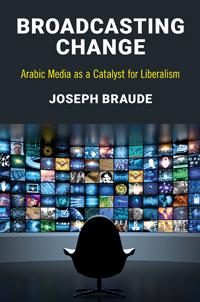From New York, we send to all the Muslims of Morocco the very best wishes for an Eid Mubarak, and every year may you be well. And to the Jewish community of Morocco on the occasion of the day of atonement, “Yom Kippur,” we say, Shana Tova.
It was perhaps a sign of hope to find these two important monotheistic holidays coinciding on one weekend this year, at a time of unprecedented sectarian strife in so much of the region. As Moroccans are well aware, King Mohammed VI continues to play a distinguished role in supporting tolerance and reconciliation among faiths — and he has not missed an opportunity to advance the cause of dialogue between Muslims and Jews in particular. The world is fortunate, moreover, that the king is not alone in this endeavor. Recent years have seen an uptick in interfaith conferences, both in the Arab world and the West. Here in New York, for example, a young Jewish American named Daniel Pincus regularly hosts gatherings in his home that bring Jews and Muslims together — and he has become increasingly active on the international scene, participating in conferences from the Arabian Gulf to the Austrian capital Vienna. That historic European city is also home to an ambitious project initiated by Saudi Arabia, the King Abdullah bin Abdulaziz International Center for Interreligious and Intercultural Dialogue, which brings together rabbis and imams as well as Catholic Priests, Protestant Ministers, and Buddhist spiritual leaders from India and elsewhere.
But among these efforts, there has also emerged a trend of politicization, of which the most prominent example is initiatives by the government of Qatar. The Qatari government has convened a number of Jewish-Muslim interfaith conferences to great fanfare — but in the context of its support for Hamas and the Muslim Brotherhood in general, questions have been raised in the international community: Are the dialogue initiatives a sincere effort to advance rapprochement between the two faiths, or are they a cynical ploy to gain credibility, deflecting attention from Qatari support for a variety of jihadist groups which target not only Jews but also Muslims who disagree with their ideology? Here in the United States, the largest Jewish organizations have reached a decision to boycott the Qatari initiatives until the government in Doha adopts a foreign policy more in keeping with the spirit of interfaith understanding and cooperation.
To be sure, interfaith dialogue initiatives are inherently political — but perhaps a line should be drawn when the political motivations of the sponsor effectively undermine the goals of the initiative.
This is a translated transcript of Joseph Braude’s weekly radio commentary in Arabic, “Risalat New York” (Letter from New York.) To listen to the broadcasts and subscribe via iTunes or Soundcloud, click here.

Thank you dear Joseph we will learn from your radio a lot .
Youssef tsouli
Moroccan Society Of New York.